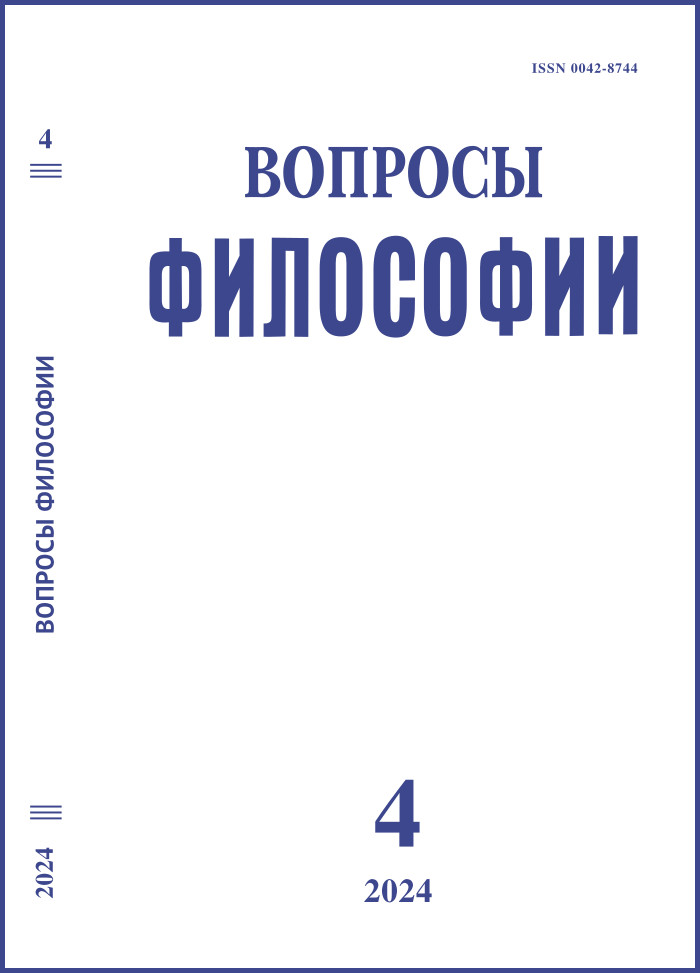Freedom, Worldly Power and Divine Power in Alexander S. Pushkin’s Kamennoostrovsky Cycle of Poems
DOI:
https://doi.org/10.21146/0042-8744-2024-4-148-157Keywords:
philosophy of Pushkin’s poems of the Kamennoostrovsky cycle, absolute individual liberty, Divine power, socio-political power, Fichte, Southey, Pindemonte, de Maistre.Abstract
The article analyzes the correlation between the ideas of freedom, first of all the individual freedom, worldly power and Divine power in the poems of Alexander S. Pushkin, written on Kamenny Island (St. Petersburg) in the summer of 1836. In the poem From Pindemonti, Pushkin explicitly rejects worldly power, both in the form of autocracy and democracy, and contrasts it with the idea of complete self-sufficiency and freedom of the individual. Pushkin may have been influenced by Fichte with regard to the doctrine of the, in essence, absolute liberty of the individual, French translation of whose Destination of Man (Destination de l’Homme, 1832) is attested in the poet’s library. In Fichte, however, it is exclusively the “will” and “force” of the individual himself that appear to be the “ultimate grounds” of all his activity. In Pushkin’s understanding, however, absolute individual liberty cannot ignore, on the one hand, the Divine basis of the universe, and on the other hand, the fact that man in his highest creative manifestations is guided and inspired by God, obedient to His will (cf., e.g., The Monument). The author does not exclude the possibility that Pushkin implicitly correlates the mystery presented in the poem of the Kamennoostrovsky cycle From the Italian with the action allegorically described by him in The Prophet (1826), as if contrasting the acts of the devil and Satan in relation to Judas with the acts of the seraphim and God in relation to himself. In general, one gets the impression that with the passage of time Pushkin, to a certain extent, increasingly correlates his “soteriological” poetic-spiritual mission with the mission of the New Testament Savior, which finds its highest expression in The Monument. In general, the author concludes that after the death of Alexander I and the defeat of the Decembrists’ revolt, Pushkin increasingly expresses the idea of the unconditional value of the individual as such, the possibility of its spiritual transformation, and when speaking of freedom, less and less he means political or social freedom and more and more he contrasts the power of heaven with the worldly power, which finds its culmination in the poems of the Kamennoostrovsky cycle. The article also makes an attempt to conditionally distinguish several main ideological stages in this process.

